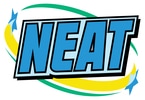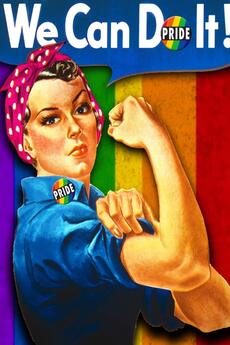Intersections highlights NEAT’s work on issues that traditionally have not been seen as LGBTQ+. These issues, while not exclusive to our community, often disproportionately affect LGBTQ+ people. Check out all our issues here.
NEAT Endorses the Protecting the Right to Organize (PRO) Act
This month, NEAT joined in a coalition letter to Members of Congress that strongly endorsed the Protecting the Right to Organize (PRO) Act of 2021. Notably, the PRO Act was also passed by the House in 2019 but never moved forward in the Senate.
If enacted, the PRO Act would make important updates to long-outdated labor statutes and:
More detailed information regarding the legislation can be found on the House Committee on Education and Labor’s fact sheet.
Labor & LGBTQ+ Rights
Long before the Supreme Court’s recent ruling that employees were protected from discrimination based on their sexual orientation and gender identity, unions often led the way in protecting LGBTQ+ workers. “For many LGBTQ Americans, a union card is their only form of employment protection,” noted AFL-CIO union President Richard Trumka in 2018. And as we mentioned in last month’s discussion regarding the importance of raising the minimum wage, addressing financial insecurities in the LGBTQ+ community is a priority and workers’ rights are an important component of that issue.
Labor & LGBTQ+ rights have a long history of cooperation and allyship, as briefly outlined by the University of Maryland, noting that after Stonewall, labor organizations in the US began to include anti-sexual orientation discrimination as part of their platforms. The American Federation of Teachers was the first union to pass a resolution, and other large unions began to join them in subsequent years. Since then, notes veteran labor activist Arsenia Reilly-Collins, unions have bargained recent contracts that include protections around pronouns, anti-harassment language, non-discrimination, health and safety, [and] expansive health benefits to include trans benefits.
This topic is even the subject of the (highly recommended!) 2014 movie Pride, which depicts the true story of urbanite LGBTQ+ people in the United Kingdom supporting miners during the 1984 national strike.
This month, NEAT joined in a coalition letter to Members of Congress that strongly endorsed the Protecting the Right to Organize (PRO) Act of 2021. Notably, the PRO Act was also passed by the House in 2019 but never moved forward in the Senate.
If enacted, the PRO Act would make important updates to long-outdated labor statutes and:
- Empower workers to exercise their right to organize;
- Hold employers accountable for violating workers’ rights; and
- Secure free, fair, and safe union elections
More detailed information regarding the legislation can be found on the House Committee on Education and Labor’s fact sheet.
Labor & LGBTQ+ Rights
Long before the Supreme Court’s recent ruling that employees were protected from discrimination based on their sexual orientation and gender identity, unions often led the way in protecting LGBTQ+ workers. “For many LGBTQ Americans, a union card is their only form of employment protection,” noted AFL-CIO union President Richard Trumka in 2018. And as we mentioned in last month’s discussion regarding the importance of raising the minimum wage, addressing financial insecurities in the LGBTQ+ community is a priority and workers’ rights are an important component of that issue.
Labor & LGBTQ+ rights have a long history of cooperation and allyship, as briefly outlined by the University of Maryland, noting that after Stonewall, labor organizations in the US began to include anti-sexual orientation discrimination as part of their platforms. The American Federation of Teachers was the first union to pass a resolution, and other large unions began to join them in subsequent years. Since then, notes veteran labor activist Arsenia Reilly-Collins, unions have bargained recent contracts that include protections around pronouns, anti-harassment language, non-discrimination, health and safety, [and] expansive health benefits to include trans benefits.
This topic is even the subject of the (highly recommended!) 2014 movie Pride, which depicts the true story of urbanite LGBTQ+ people in the United Kingdom supporting miners during the 1984 national strike.


 RSS Feed
RSS Feed
